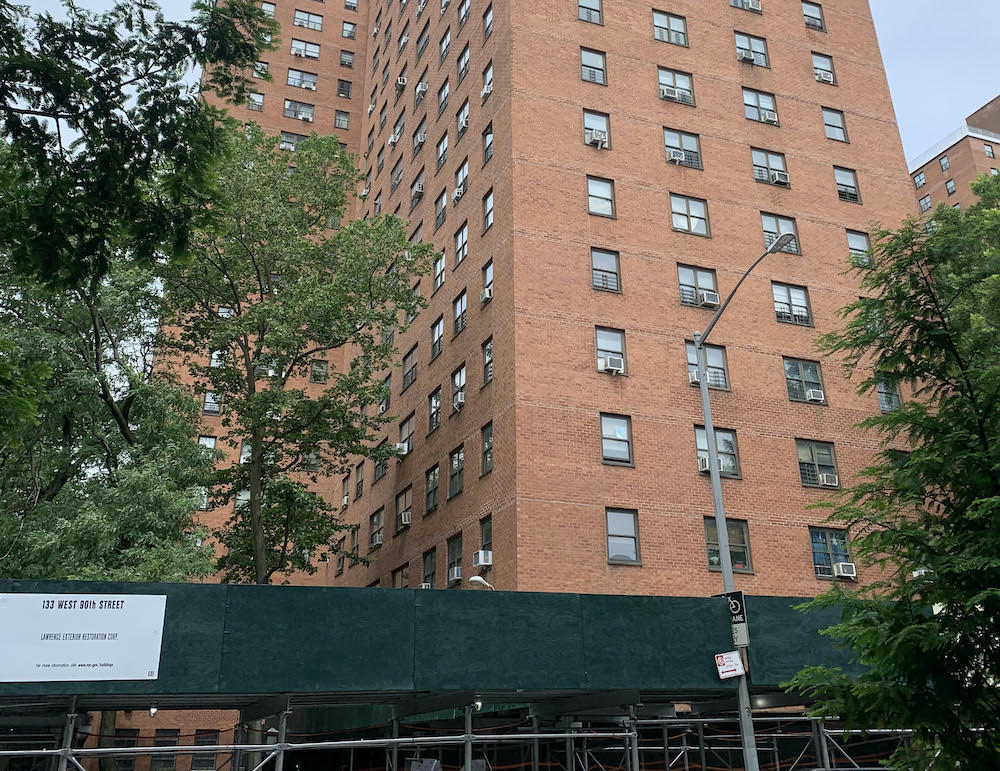A private network consortium responsible for financing and renovating 16 different New York City Housing Authority (NYCHA) developments under the controversial Rental Assistance Demonstration (RAD) has begun much-needed and long-overdue renovations on buildings previously under NYCHA management.
NYCHA selected the PACT Renaissance Collaborative (PRC) through a competitive bid to overhaul through the RAD program for 1,700 units that house 3,000 residents – all in Manhattan. The PRC consortium is made up of both private for-profit and nonprofit developers.
RAD was created under the Obama administration in order to give public housing agencies that were backlogged a tool to improve and renovate housing for residents through private management companies like PRC.
RAD is currently applicable to about 62,000 housing units across NYCHA developments, with PRC being responsible for 1,700 units that house 3,000 residents – all in Manhattan.
Proponents of RAD argue that oftentimes, residents under NYCHA struggle to get things fixed in their homes due to poor funding or are forced to wait extended periods of time to get those fixes through what has become a slow, bureaucratic process.
City Councilmember Alicka Ampry-Samuel (D-Brooklyn), chair of the council’s Public Housing Committee, feels as though RAD should allow for resident management corporations. A resident management corporation gives public housing residents a legal option through which they can take full or partial management responsibilities of their developments.
“Some residents want RAD and some residents don’t. I think we should be finding ways to put more money and resources into traditional public housing,” said Ampry-Samuel. “But some residents can’t stand NYCHA and don’t want to be a part of NYCHA, and would prefer to be with a different management company.”
Some argue that RAD is privatizing public housing. The law mandates that private developers are not allowed to raise the rent more than 30% of the tenants’ income.
“There’s really no change in rent, there’s really no change in any kind of eviction,” said Amy Stokes, assistant vice-president of Monadnock Construction, a partner of the PRC. “NYCHA still has a ton of regulatory requirements over us. NYCHA still literally owns the property.”
Stokes said NYCHA had to resort to using private companies because of a poor funding stream as well as NYCHA’s management sometimes being slow and inefficient with necessary upgrades and repairs.
Residents can struggle to get in contact with NYCHA to get the fixes they need to be done. RAD speeds up this process while also giving residents a more reliable line of communication, Stokes said.
“It would be ignorant not to acknowledge that there is a lot of skepticism, that in and of itself is a challenge in some instances for residents because you’re no longer paying your rent to NYCHA and you’re no longer calling the NYCHA hotline, so there is that period where the residents have to get used to it,” said Pierre Downing, owner of Kalel Holdings, also a partner of PRC.
“The buildings are entering into private management but the private managers are being held accountable by NYCHA,” continued Downing.
Tenants in these buildings managed by PRC contact a tenant liaison, who serves as the middleman and messenger between tenants and the construction team.
Sakina Powell, who has been a tenant liaison at PRC for almost two years now, is responsible for overseeing 2 buildings and over 100 units. She says tenants have a variety of ways of getting in contact with her like through phone and email or going into her office directly.
“I am the bridge between the construction workers and residents,” said Powell. “I focus on the scope of the work like what’s going to happen and the time frame.”
Olga Lauriano has been the tenant association president at 99 Fort Washington for 14 years, and has lived there for over 20. Her building was taken over by PRC management, and she says the changes have been dramatic.
“It’s fantastic over here, everyone is excited,” said Lauriano. “When PRC came we got all this change. The bathrooms are fixed, the tiles are fixed, the building is clean.”
Lauriano says it’s the shift from NYCHA to PRC is most noticeable in the response time. She said it took months for NYCHA to get things fixed in the building. Now with PRC, it’s just one phone call and things are done quickly.
“Our problems are taken care of immediately,” said Lauriano.
The RAD program is one that has been privy to arguments from all sides and angles that has left tenants in the middle of a political tug-of-war.
“We can’t keep pushing forward with RAD and we don’t know the current benefits of the units that have already been converted or in the process of converting right now,” said Ampry-Samuel.









